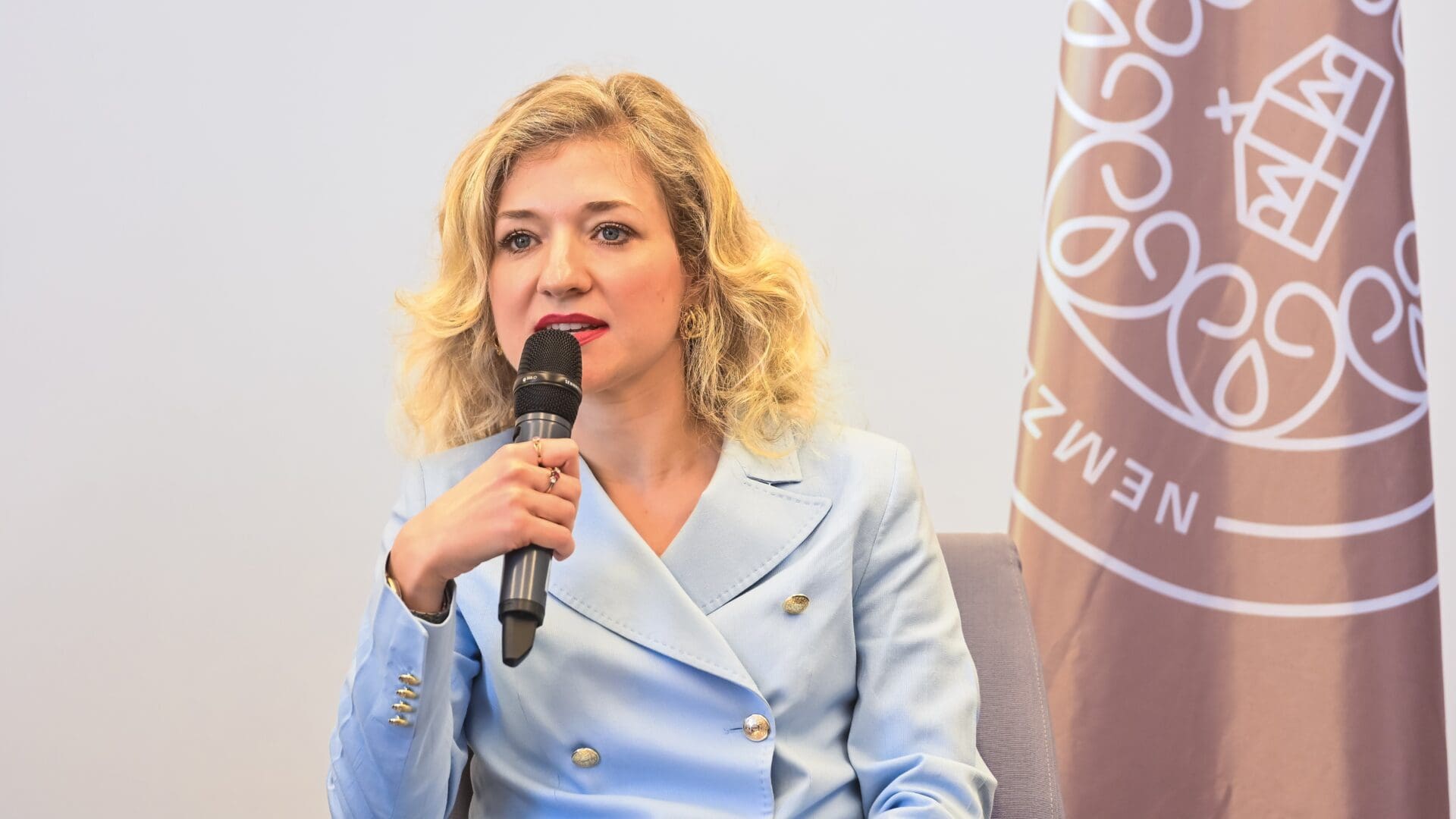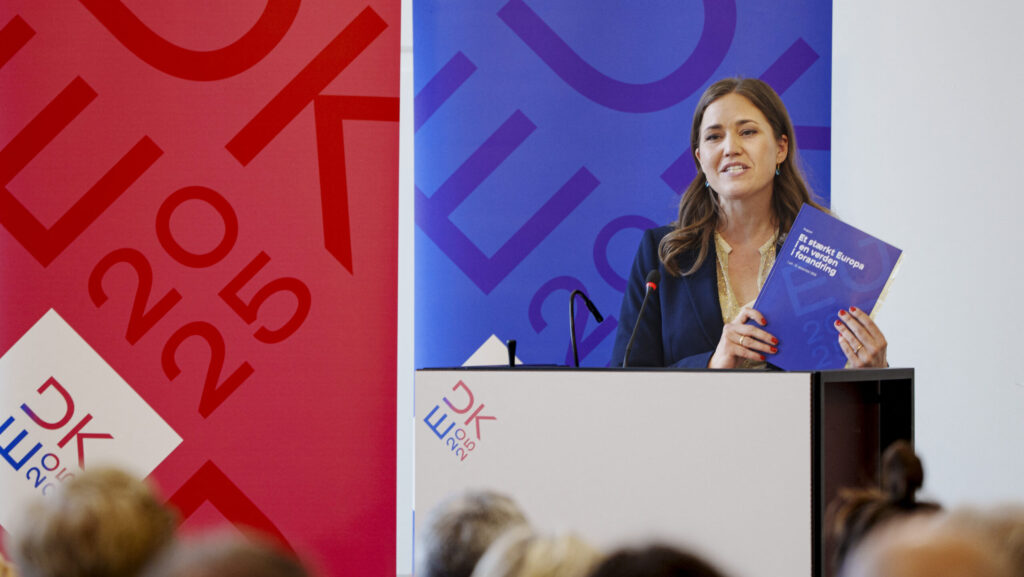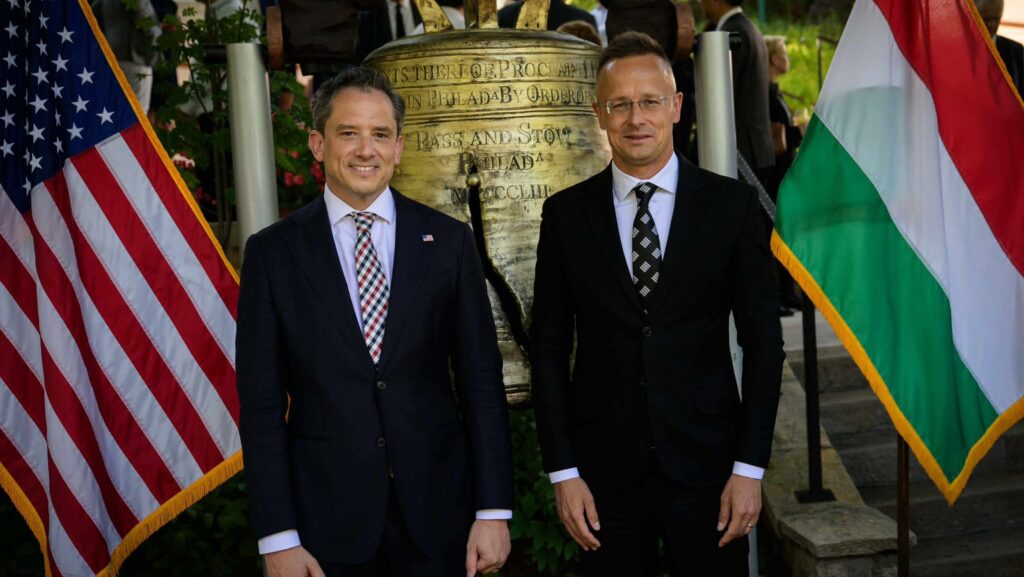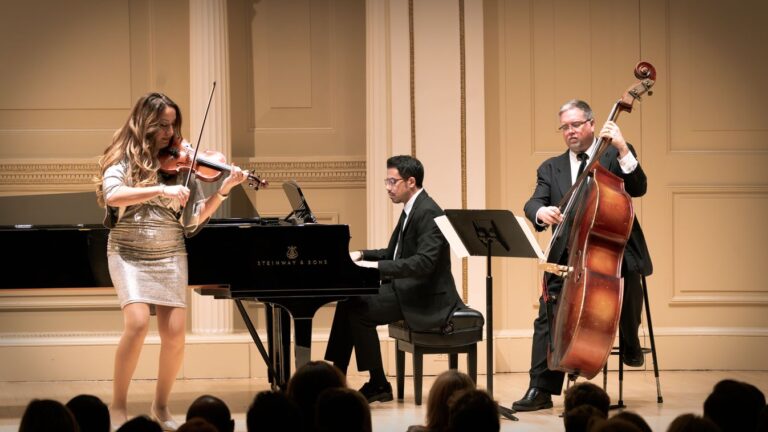Dr Joanna Siekiera is a legal advisor to various military institutions. She is a fellow at the Marine Corps University in Quantico, USA. During an event titled Into the Breach: Europe’s Call to Arms hosted by the Ludovika University of Public Service at their Budapest campus on Wednesday, 10 April, Hungarian Conservative had a chance to talk to her about security in Europe.
***
As it was mentioned on stage, the Swedish NATO accession recently became reality. Many press sources claimed that Hungary was intentionally blocking it. What is your opinion on it?
As a NATO consultant and an international lawyer, I would not use the verb ‘blocking’, I’d say ‘abstain‘ as an immediate answer. And again, we must recall the most important principle of international law being the principle of sovereignty of state. Sovereignty means that every country can do whatever they want, within the law, without explaining themselves. Because of this, I don’t understand why most countries, especially Western European NATO members, were against Hungary and its sovereign choice to wait. Please see that Türkiye was doing exactly the same thing. They were also using this once in a lifetime opportunity in NATO history to gain something, to be visible, to be seen as an equally important NATO member.. Turkish stance was analysed by so many international analysts. . So Ankara used this time, they waited, they said to Americans, okay, we might eventually say ‘yes‘ but we need some military support. And so they got US approval of sales of F-16 fighter jets to Türkiye. And what did you guys get? I don’t think anything at all. Unfortunately, there is only bad PR against your country. But again, I am really strongly against this bad PR, because it’s all targeted in your government and your conservative values that you stand for. Please mind, if you had different views, you had different government, Western countries would not be that negative about Hungary. I’m 100 per cent sure here.
What is your opinion on Hungary, a relatively small country becoming more and more influential as a Conservative power globally?
We’ve been talking actually, before the interview that we in Central Europe should stop feeling anyhow less relevant than our Western European neighbours, NATO and EU allies. From the fact that we share different values, it doesn’t mean that we are any less valuable. I can observe that in many countries, especially when I teach officers, when there is for example, an Italian or French officer, even though they don’t speak English, they would assume that they are better prepared to discussion just because they come from those particular countries. But when there is a Polish officer, Hungarian or Romanian, they stay silent! Unbelievable. We, in Central Europe speak more languages than our Western colleagues who are so proud of their own languages that they barely speak English, and we stay silent. This is unacceptable for me. We have so much to offer and to bring to the table including different perspectives, our course of history and experience. We know what communism is, we also know what Nazism is, so we lived through those totalitarian regimes thus we gained very deep, personal experience. I wouldn’t say all of them but most Western thinkers and commentators blame only Nazism, not mentioning how tragic and larger in scale of victims communism was. They blame only Nazi Germany for the Second World War, they don’t see what Soviets did to us. I must add here, I even visited your monument of 1956 yesterday. That was really heart-breaking. So, you Hungarians know what you’re talking about. You know the threats. Therefore in our own security of both European Union and NATO, we should take every country seriously, not only Westerners.
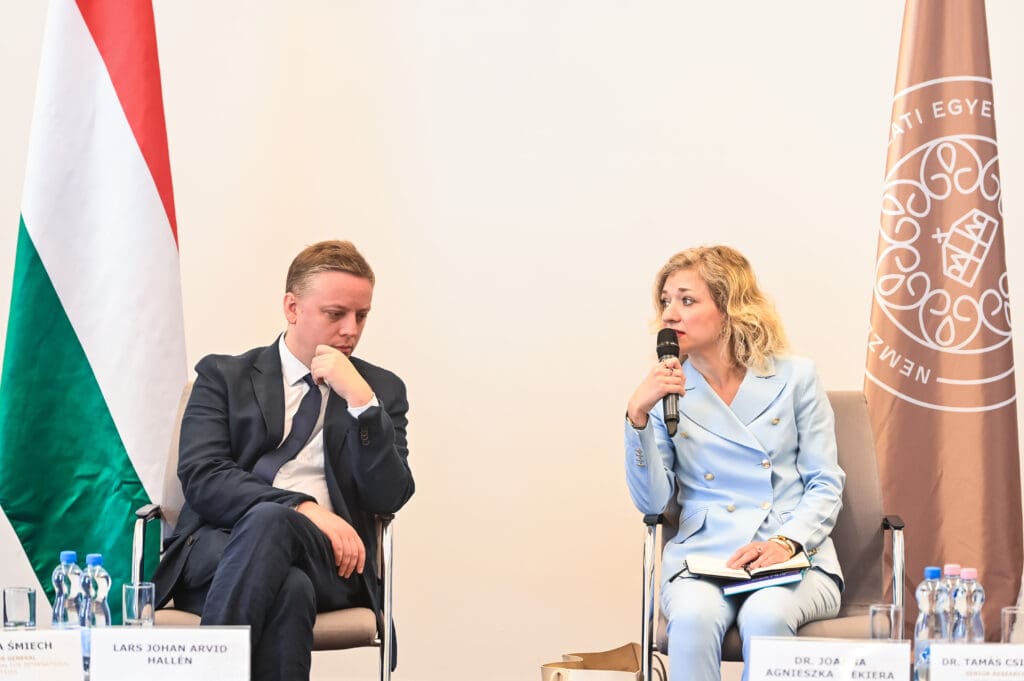
You are obviously very successful in your career, but also in academia. How are you able to balance research and your practical work, military advising? And do you think one influences the other more?
Very good question. Because I cannot understand international lawyers who only been to academia. After all, what can you know about the true world, how societies live and set their values? What can you do with military who have been deployed and had their boots on the ground? As you know, I got my sailing license in February, and now I am officially a certified sailor. It’s not only my passion but a useful tool to understand the maritime threats on the sea, how the collision regulations really work or not. Because when I talk to Navy people, what can I tell them without any experience? Something from the books? And I feel bitter to admit, most academics do that. But for me, this is not smart or desired. This works against our future capacities of shaping our sailors, marines, soldiers, and aviator. So this is why it’s important to go abroad. That’s why I’ve been to Russia. I’ve been to Georgia, Transnistria, but most likely I will never go to China, though. But again, it absolutely essential to understand mentality of our opponents, the language they use, and I not only mean communication but also the meaning behind words, rationale of their actions and omissions, this is very important. So, we must use all the capacities, not only books, which of course is another source of knowledge, but to understand the people, to understand our allies, how we operate, why do we operate that way not the other. And again, to go abroad, like I am here, I’m honoured to be here surrounded with fantastic people. For me being Polish, it’s very, very significant to be here in Hungary, because we really respect one another. And I will just tell you that even on my Matura exam after high school, on the history exam, I had a Polish-Hungarian relations essay.
There’s been a lot of echo in the media, about Hungary and China and their business relations. What would your opinion be on Hungarian government, working together with China to expand markets and industry?
Working with every totalitarian regime does bear the consequences. I always like to say that after every dollar comes capitalist values, and after every yuan comes communist values, so entering Chinese partnerships, and again, they are not private partners, they are governed by the Chinese Communist Party, they are told to accomplish their project, political project. They infiltrate, they steal technology. And what we’ve been observing across not only the European Union but in other continents, too. But let’s talk about the EU for a moment. The largest shipyards, harbours, airports, telecommunication companies, they are owned by the Chinese. So they have easy access to our most strategic critical infrastructure. And again, if all of that can be used by China, it will not be used for our own benefit, it will not be used for the peaceful means. They have been working on expanding and maintaining spheres of influence in Africa, in South America, in Oceania. And the research I’ve been doing in the Pacific, sailing across the Pacific Ocean, I’ve been witnessing only Chinese spying vessels. Imagine that: 2 months at open sea, no entering to any harbours, and the only vessels we were passing by were Chinese! Officially, according to the data these were fishing vessels, but they were not fishing vessels, absolutely not. So answering your question: doing business with Chinese Communist party is very dangerous. If you decide to play with fire, you might and most likely will get burned – thus you have to be prepared for all the negative repercussions.
Another controversial issue in Hungarian politics was not allowing weapons shipments through the country. The government emphasized that it is to keep the country safe, however. Do you agree with the reasoning?
I don’t deal with Hungarian politics. So I have no right to comment. But again, I know that the Hungarian population is not pro-Russia. I would never call you guys pro-Russia! Instead, I would call many Western, democratic countries who are falling dependent from Russian companies, from Russian cheap gas, cheap natural resources. Did you know that the Netherlands or Belgium successfully opposed putting any sanctions on Russian gold or diamonds? That is not a common knowledge. Why? It’s all about the money. It’s better to portray themselves as democratic states and look for an enfant terrible being Hungary (or Poland many times). So who is actually pro-Russian here I could ask. And this is very important to understand that this war in Ukraine shows many sides of different countries. And please look how Poland, my country was supportive to Ukraine, and now Ukraine is suing Poland for not taking Ukrainian crops. Also, Ukraine instead of letting Polish engineers and our companies to work to rebuild Ukraine, they invite whom? Germans, even though the Germans since the beginning were not directly against Russia, they were saying, ‘look Ukrainians, you should sit down to negotiate with Russia‘. Negotiate on what? Do you negotiate with terrorists? Berlin was promising to send helmets. Seriously? And those infamous helmets reached Ukrainians many weeks after as German side said they had a problem with the postal service. And look what is happening now, some countries in the Western world would blame your country, Hungary, not Germany. This is absurd! I don’t understand that. But also, it comes from the negative perception of Central Europeans that we don’t know how to promote ourselves, that we are still feeling less important, less valuable than our Western colleagues. They don’t have any complexes. But we do. And I think it’s time to stop that.
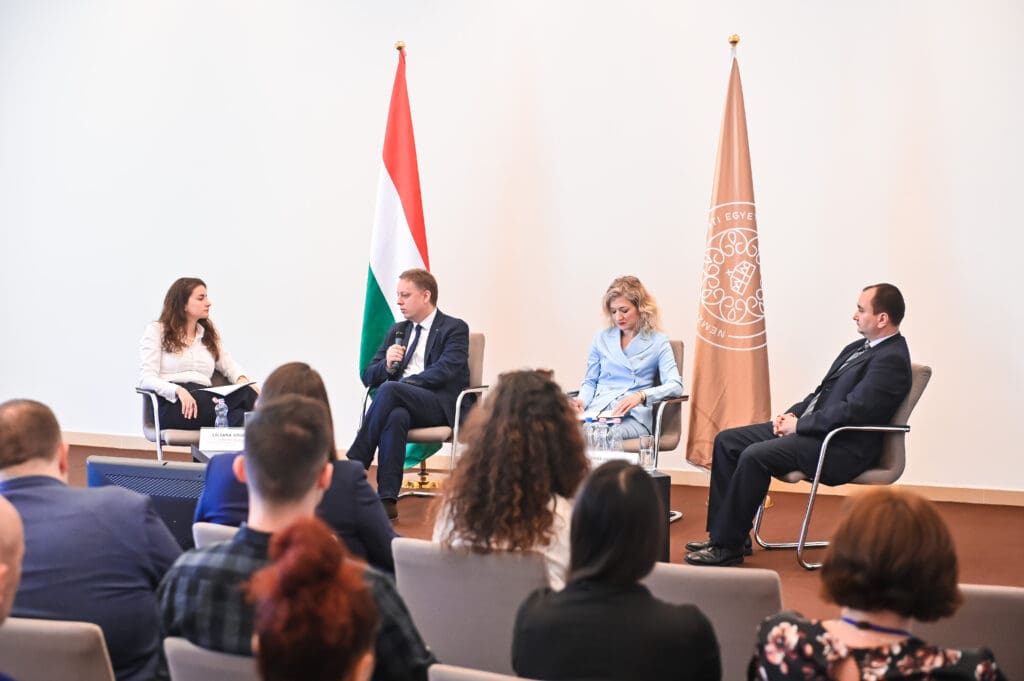
On stage you mentioned cybersecurity, as there are no laws in Poland in this domain. What is the reason for that?
We don’t have any parliamentary bill about cybersecurity. Yes, we have nominated a cybersecurity coordinator exactly on 14 February this year. We also have The Cyberspace Defence Forces (Polish: Wojska Obrony Cyberprzestrzeni), tiny, but we do have some, also military classes devoted to cybersecurity in professional military education. Yet, we don’t have any act, any bill, any legal basis. Many countries there is the same case as they never codified what a cyber-threat or a cyber-attack is., From my experience, what I teach and am surrounded by cyber security experts, the very reason the lack of legal framework is that once we codify what a cyber-threat is, the cyber criminals would work under the threshold of the definition, because if we will put ‘if you do x in the circumstances, you will be punished with z‘ kind of typical definition, then we give cybercriminal a gift – and the act under the threshold of our definitions. They are not stupid. They know how to manoeuvre between the law. Therefore, countries prefer not to define, so they don’t help the potential cyber terrorist to act. But then again, we have different mentalities within the EU, different interests and assets, different cooperation, and different economic partners. I also don’t think there will be any international treaty about artificial intelligence. But we should talk about that even more because states and non-state actors (primarily terrorist groups) they are using all the methods possible against us and our values. And we somehow naively still wait for conventional war. Like we, the Central Europeans, we’ve been warning the world about Russia and its imperialist appetite. But Westerners, they woke up only in 2022.
From my work, I can recall so many quotes by my colleagues from Western Europe, from Northern Europe calling us here in Central Europe, paranoic and Russophobes. Yet, we know what Russia is capable of, and what their imperialist appetite tastes like. We know how they act, we know what they are willing to sacrifice. Again, many western analytics or journals were deeply shocked with the beginning of the war in Ukraine, but also they continue to be surprised, saying ‘Oh, my goodness, Russia is sending more soldiers and now they called for conscription for the spring to have 150,000 soldiers. Of course they do. It’s war, why shouldn’t they? Because we don’t like it, because it’s against international law?. Because it’s a matter of pride. It’s a matter of keeping this image of big Russia (Rus: Большая Россия) in front of their own citizens, in front of their partners and allies in Middle East and Central Asia. I must and will always underline the need for us, the West to stop thinking like everyone is following the international law order like we do. Perpetrators, both states and non-state actors, are not stupid, they deal the card and are anyhow ashamed of breaking the law in order to justify their illegal actions. And this is what I call Lawfare, so legal warfare, using law for own strategic (political and military) objective. And the law is now one of the tools they (China, Russia and beyond) have been using next to public manipulation, psychological operations, fake news, artificial intelligence. This is still a war, not conventional warfare, but other types of hybrid warfare are presented in full scale.
Read more about the Ludovika University event:

